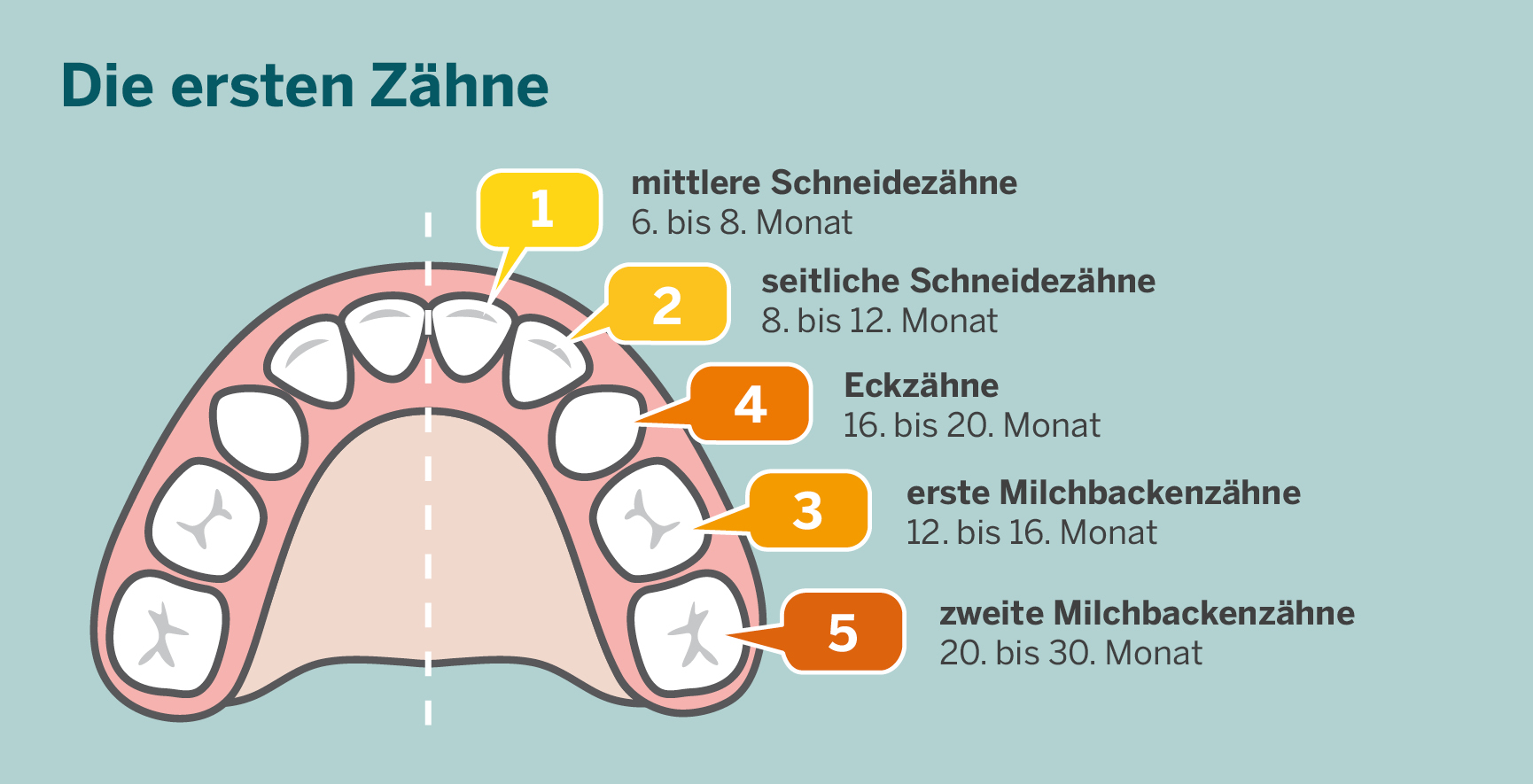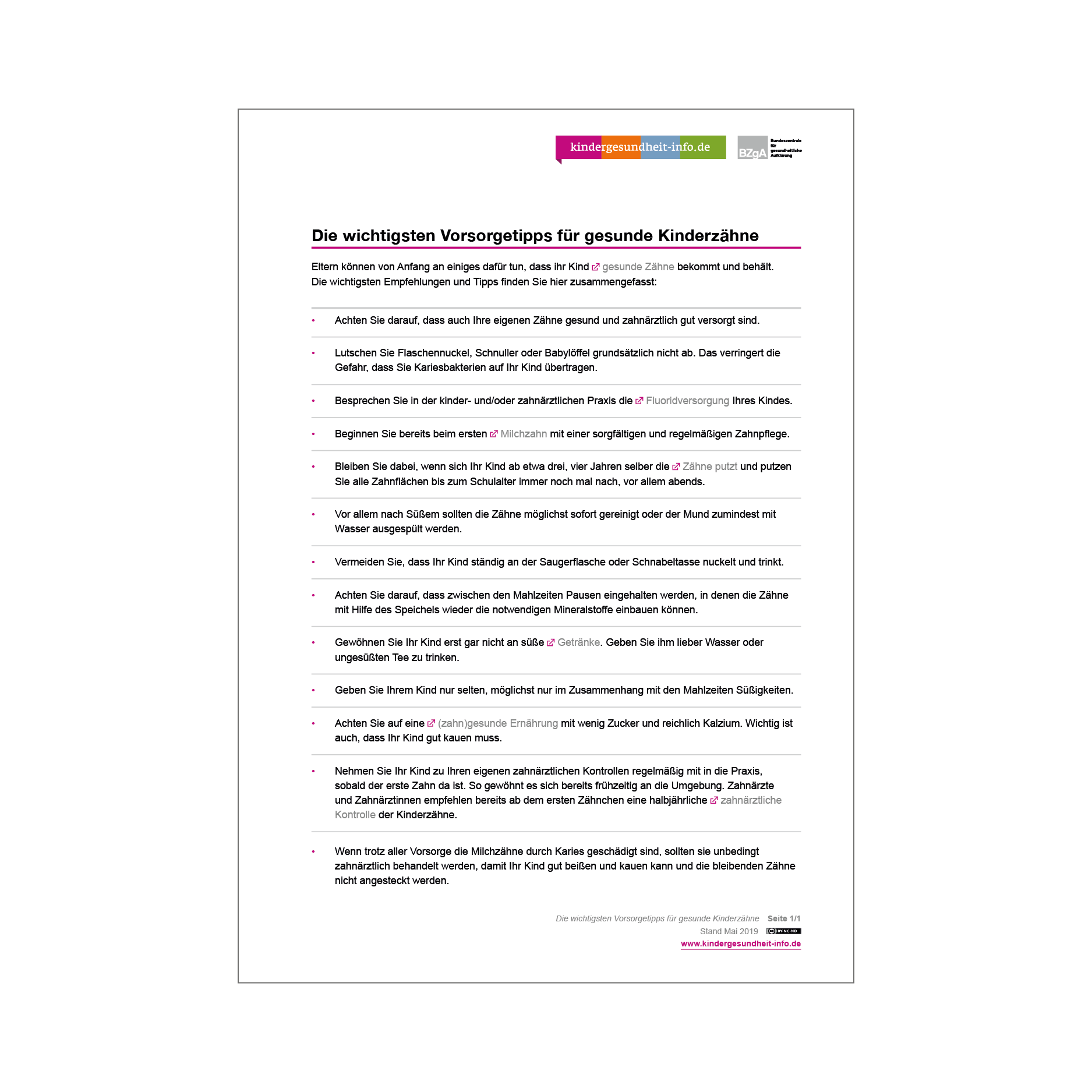The first teeth
The first teeth appear
The joy of the first tooth is usually great. However, the teething period is often associated with sleepless nights, restlessness and a slight fever. Here you will find the most important information about teething and your child's dental health to help you support their development as well as possible.

When does the child start teething?
The first milk teeth usually appear at the age of 6 to 8 months. They usually start with the two lower incisors. At around two and a half years of age, the primary dentition is complete with a total of 20 teeth.
How do the first teeth appear?
The teeth are already in place before they erupt in the jaw. They advance slowly and can cause pain even before they are visible. During teething, the gums are often reddened. Some babies are particularly restless during this time, cry and have a slightly elevated temperature or diarrhea.
What helps babies with teething?
-
Teething rings
Cool teething rings can alleviate the discomfort.
-
Washcloth
Give your baby a washcloth soaked in water or chamomile tea to suck on. This has a calming effect.
-
Chewing material
Hard bread or raw carrots to chew on can also help.
-
Gentle massage
Many babies find a gentle massage of the teething area pleasant.
-
Tooth gel for cooling
Cooling tooth gels with camomile or homeopathic and herbal preparations from the pharmacy can have a calming effect by reducing itching and providing short-term relief.
-
Drink
Make sure that your baby drinks a lot during this time.
Why do baby teeth need careful care?
It is wrong to believe that milk teeth do not need to be cared for so thoroughly because they will fall out anyway. Milk teeth need careful care right from the start. This is because every sick tooth, and this also applies to milk teeth, causes your child great pain.
Milk teeth also have important tasks for maintaining dental health:
- Milk teeth are placeholders for the permanent teeth.
- Chewing promotes the development of the jaw.
- And if the milk teeth have caries, there is a risk that the caries bacteria will be transferred to the permanent teeth.
When should dental care begin?
Regular dental care should begin as soon as the first teeth break through at around 6 months of age. Use an age-appropriate, very soft children's toothbrush with a small head. This allows you to gently clean the teeth. Teeth should be cleaned twice a day. This will help your baby get used to the morning and evening brushing routine right from the start. First clean the chewing surfaces with short forward and backward movements, then the outer surfaces with circular movements and finally the inner surfaces of the teeth.


